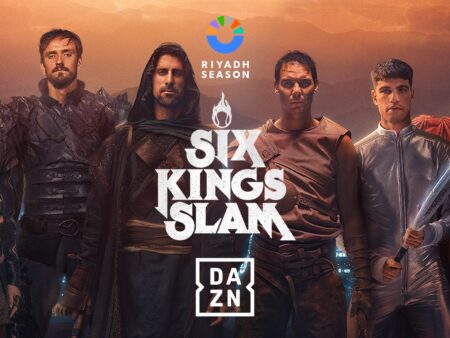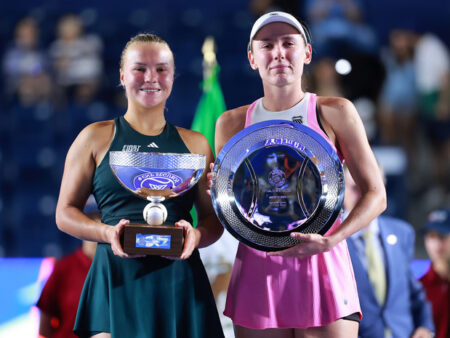
The National Hockey League is a perpetual motion machine, constantly evolving its on-ice spectacle while meticulously planning its future off the ice. Recent insights from NHL Deputy Commissioner Bill Daly reveal a league actively expanding its reach, refining its product, and grappling with the intricate ethical challenges that inevitably accompany a high-profile sports enterprise. From significant schedule alterations to the strategic re-establishment of international tournaments, the NHL is charting a course that promises both excitement and complex introspection.
The 84-Game Gambit: A September Start and a Shifting Calendar
One of the most immediate and impactful changes on the horizon is the expansion of the regular season from 82 to 84 games, set to commence with the 2025-26 season. This seemingly minor addition necessitates a notable shift in the league`s calendar: the regular season will now kick off in September, rather than its traditional October start.
Daly noted that this adjustment primarily serves to prevent an over-extension of the overall schedule, a sensible logistical response. However, such optimization carries its own ripple effects. Fans can anticipate a slightly abbreviated pre-season, a trade-off for more competitive regular-season action. Curiously, Daly also hinted that the subsequent 2026-27 season might be “shorter,” suggesting the league is not averse to dynamic calendar adjustments to manage player load and international commitments. It appears the pursuit of efficiency, in some cases, involves a certain amount of seasonal fluidity, an interesting blend of rigid planning and adaptable execution.
Global Ambitions: The World Cup`s Grand Return and International Stages
Beyond the domestic schedule, the NHL is unequivocally re-embracing its global aspirations. With the league`s players set to participate in the Winter Olympics in 2026, the stage is also being set for the much-anticipated return of the World Cup of Hockey in 2028. This tournament, a mid-season fixture in February, is envisioned as an eight-team competition, strategically split across two North American cities and one European venue for its initial rounds, with the semifinals and final exclusively hosted in North America.
The enthusiastic response from over 20 North American markets, alongside strong European interest, underscores the pent-up demand for high-stakes international hockey. The host cities are expected to be unveiled by the end of the current season, marking a concrete step towards solidifying the NHL`s global footprint. This renewed commitment to international play signals a strategic move to elevate the sport`s profile on a worldwide scale, bridging national rivalries with the collective pursuit of hockey supremacy.
Even the All-Star Game is being subtly repositioned. While Daly reaffirmed the league`s commitment to the annual showcase, this season`s event is reportedly framed as an “international event” and a “jumping-off point for the Winter Olympics.” This move suggests an effort to imbue the traditional mid-season festivities with a greater sense of purpose, linking domestic celebration with upcoming global endeavors. The success of the revamped skills competition and the engaging 3-on-3 format indicate a willingness to innovate within established traditions, a positive sign for fan engagement.
The Unseen Arena: Player Eligibility and Ethical Crossroads
Yet, amidst these forward-looking plans for expansion and global outreach, the NHL finds itself navigating a profoundly sensitive and complex internal challenge: the eligibility of five players (Michael McLeod, Carter Hart, Alex Formenton, Dillon Dubé, and Cal Foote) involved in the high-profile Hockey Canada sexual assault trial. Despite their acquittal in July, the league has deemed them “ineligible” to play pending its own review of the findings.
This decision has created a clear friction point with the NHL Players` Association (NHLPA), which argues that ruling players ineligible after an acquittal, and after missing a full season, is inconsistent with the Collective Bargaining Agreement`s (CBA) discipline procedures. The NHL`s stance, emphasizing that while not deemed criminal, the allegations were “very disturbing” and the players` behavior “unacceptable,” highlights a critical juncture for the league. It`s a testament to the modern sports landscape where legal outcomes do not always align with an organization`s internal standards of conduct or its public image considerations.
This situation presents a delicate balance between player rights, collective bargaining agreements, and the league`s moral obligations. It underscores the broader societal expectation that professional sports leagues, as public entities, must uphold certain ethical standards beyond the letter of the law. The resolution of this dispute will undoubtedly set precedents for how the NHL addresses similar issues in the future, proving that even a league focused on growth must critically examine its foundational values.
A League in Transition: Ambition Meets Accountability
The composite picture painted by Deputy Commissioner Bill Daly is one of a league operating on multiple, often divergent, fronts. The NHL is pursuing aggressive growth through schedule expansion and a reinvigorated international presence, showcasing its ambition and commercial acumen. Simultaneously, it is wrestling with profound ethical questions concerning player conduct and the delicate balance between legal judgments and internal accountability.
As the puck drops on these new initiatives and existing challenges, the NHL`s trajectory in the coming years will be defined not just by the goals scored or the championships won, but by its capacity to manage these complex dynamics. It`s a journey that promises to be as compelling off the ice as any nail-biting playoff series.










